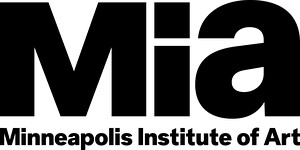Fifth Cinema
September 29, 2019–March 1, 2020
2400 3rd Ave S,
Minneapolis, Minnesota 55404
United States
Hours: Tuesday–Sunday 10am–5pm,
Thursday–Friday 10am–9pm
T +1 612 870 3000
The Minneapolis Institute of Art (Mia) will present the first U.S. solo museum exhibition of work by artist and filmmaker Nguyen Trinh Thi (b. 1973, Vietnamese). Opening September 29, 2019, Nguyen Trinh Thi: Fifth Cinema is the U.S. premiere of Nguyen’s hybrid essay-film Fifth Cinema (2018), a single-channel installation that examines the power of film to reclaim indigenous history and land from Western and internal colonialisms/colonizations. The exhibition will be on view through March 1, 2020.
Fifth Cinema explores a subjective understanding of the artist’s homeland, Vietnam. Nguyen interrogates local, official histories and external viewpoints on Vietnam, together with the wider ideals of women and men, the role of the artist in society, and the landscape as metaphor. The 55-minute video proposes a homegrown authority that is derived from the artist’s own culture, expanding the concept of “Fourth Cinema,” which was originally conceived by Māori filmmaker Barry Barclay in the 1990s. According to Barclay, “Fourth Cinema” is a cinema by, about, and for indigenous peoples defined in opposition to the framework of First (American), Second (Art House) and Third (Third World) Cinema.
The film continues Nguyen’s practice of combining her own moving images with found footage to create works that confront issues within a specifically Vietnamese context, but are also universal. Personal accounts, popular movies, government films, news footage, documentary material, home movies sold on eBay, and YouTube videos are interwoven with the artist’s own material in her consideration of how the camera mediates understanding.
“Nguyen Trinh Thi’s film is a deeply personal portrait of Vietnam that layers the artist’s experience of place and identity in palpable form for the audience,” said Gabriel Ritter, curator and head of contemporary art at Mia. “On the one hand the film is a visual essay—a treatise on what Indigenous Cinema might look and feel like from her particular perspective as a Vietnamese filmmaker. On the other hand, it is a feminist vision of the future as seen through the present—a mother seeing the world through the eyes of her daughter. Given the museum’s commitment to championing underrepresented voices, I am incredibly excited to premier this work for a U.S. audience here at Mia.”
Fifth Cinema seeks a space between personal and collective memory, while continuing the artist’s explorations into how to let others speak for themselves. The culmination of her work over the last five years, Fifth Cinema is a reflection of Nguyen’s multiple identities: a citizen (of Vietnam, and the world), a filmmaker, an artist, a woman, a mother.
Accompanying programming includes an artist talk on Thursday, October 10. For more information, click here. This event was made possible by generous support from the Gale Family Endowment.
Nguyen Trinh Thi is a Hanoi-based film/media artist and co-founder of Hanoi Doclab, a center for documentary films and moving image in Hanoi. Her moving image work—including experimental documentary films, single-channels, and video installations—consistently engages with memory and history and reflects on the roles and positions of artists in society. Nguyen’s works have been shown at international festivals and exhibitions, including the 9th Asia Pacific Triennial; Biennale of Sydney; Jeu de Paume, Paris; CAPC musée d’art contemporain de Bordeaux; the Lyon Biennale 2015; Asian Art Biennial 2015, Taiwan; Fukuoka Asian Art Triennial 2014; Singapore Biennale 2013; and Rotterdam International Film Festival.
Home to more than 90,000 works of art representing 5,000 years of world history, the Minneapolis Institute of Art (Mia) inspires wonder, spurs creativity, and nourishes the imagination. With extraordinary exhibitions and one of the finest art collections in the country—from all corners of the globe, and from ancient to contemporary—Mia links the past to the present, enables global conversations, and offers an exceptional setting for inspiration.



